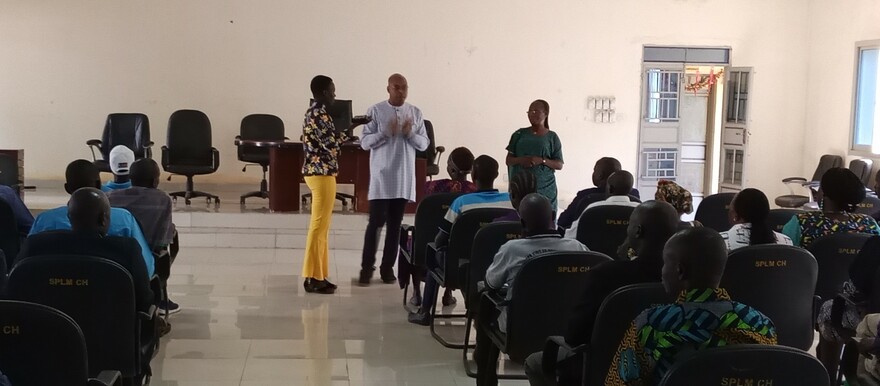A two-day training session for traditional leaders, including youth, civil societies, and women leaders, concluded last week with a strong emphasis on empowering chiefs and women to provide legal services to grassroots communities.
The training, organized by the UNMISS Human Rights Division, focused on human rights, cultural practices, and monitoring and reporting conflict-related violations in Torit, the capital of South Sudan’s Eastern Equatoria state. Participants were drawn from the four counties of Torit, Magwi, Ikotos, and Lafon.
During the training, Joseph Odongi, the paramount chief for Ikotos County, urged UNMISS to advocate for increased funding and the training of more traditional leaders at the grassroots level. He also highlighted the need for the protection of chiefs, who face the challenging task of maintaining law and order in rigid and polarized communities.
“We must address the safety and security concerns of our chiefs if we are to effectively implement change. Furthermore, I emphasize the inclusion of women in this program. They should be welcomed as leaders in any court, as our local government act mandates the appointment of commissioners, executive directors, and members of the court system to include youth, women, and elders. Unfortunately, women have been excluded from these positions thus far,” stated Chief Odongi.
Anyek Rose John, the women leader of Magwi County, called for the empowerment of women in all spheres of life. She emphasized the importance of women’s involvement in leadership roles at all levels, from grassroots to higher positions of authority.
“As women, we must not regress but continue moving forward in all forms of leadership. We are prepared, and we should stand strong in all three branches of government. We must not revert to the old ways because peace is fostered by women, and the involvement of women in community activities leads to success. Let us encourage our men and youth to coexist peacefully,” expressed the women leader.
Oriaja James Libirato, the Deputy Youth President in Eastern Equatoria State, expressed how the training had enlightened them to provide legal services to the community. He acknowledged that the population had been living without adequate knowledge on how to address issues, which had contributed to widespread conflict.
“This training has opened our minds regarding human rights and our constitution. We now understand the procedures for addressing our problems. I encourage all of us from different counties to make use of the tools and knowledge we have received. It is essential to put this knowledge into practice. This is how we can effect change in our communities,” said Libirato.
Anthony Nwapa, the Head of Human Rights for Torit UNMISS Field Office, affirmed UNMISS’s commitment to supporting local communities in their efforts to combat human rights abuses.
“The level of engagement and challenge we experienced during our interactions with you demonstrates your commitment to the cause of human rights. I assure you that this will not be the last time we engage with you. We will continue to collaborate and conduct workshops with you. Together, we can strive to realize human rights in Eastern Equatoria State. We will work closely with the chiefs in Torit, and we will explore possibilities to ensure that human rights are upheld in the state,” stressed Nwapa.
Meanwhile, Aya Becky, the State Chairperson of the State Human Rights Commission, held community leaders responsible for not reporting human rights violations. She urged leaders at lower levels to ensure that human rights violations are promptly addressed throughout the state.
“The increase in human rights violations is due to your silence. When we are raped, we keep quiet. We refrain from speaking out. This is unacceptable, especially considering the growing prevalence of such crimes. I wonder if we will still be alive in five years’ time if this continues. Men, especially the youth, you are at the heart of these issues. You engage in shootings, rapes, and revenge killings persist. Even after reconciliation, revenge resumes within two days. This must stop,” explained Aya.




